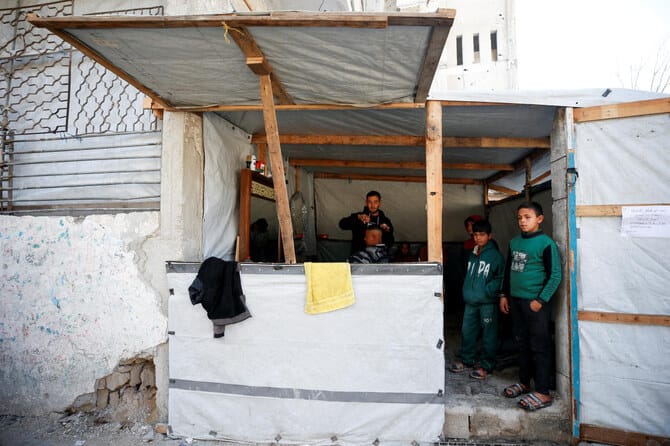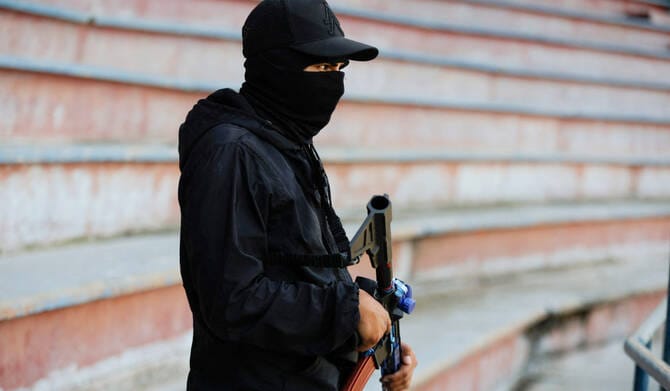A look at Gaza ceasefire talks after Hamas accepts a new proposal from Arab mediators

Hamas says it has accepted a proposal from Arab mediators for a ceasefire in the 22-month war sparked by its Oct. 7, 2023, attack into Israel. Israel has not yet responded and says it is still committed to defeating the militant group.
The latest proposal developed by Egypt and Qatar contains only slight modifications to an earlier one advanced by the United States and accepted by Israel, according to Egyptian and Hamas officials who spoke on condition of anonymity to discuss the sensitive talks.
The deal would include a 60-day truce, the release of some of the hostages held by Hamas in return for hundreds of Palestinian prisoners, a flood of humanitarian aid into Gaza and talks on a lasting ceasefire.
Israel has vowed to continue the war until all the hostages are returned and Hamas is disarmed. President Donald Trump gave support to those goals Monday in a social media post, saying Hamas must be “confronted and destroyed” to ensure the return of the remaining hostages.
A ceasefire, a hostage release and an influx of aid
The details of the latest proposal have not been made public, but the two Egyptian officials and two Hamas officials described the broad outlines to The Associated Press.
There would be a 60-day ceasefire in which Israeli forces would pull back to a buffer zone extending 800 meters (875 yards) into Gaza. The officials said Trump’s Mideast envoy, Steve Witkoff, had proposed 1,500 meters (1,640 yards) and Hamas countered with 600 meters (656 yards) before the talks stalled last month.
Hamas would release 10 living hostages and the remains of 18 others in phases, in exchange for the release of around 1,700 Palestinians imprisoned by Israel, including 200 serving life sentences after being convicted of deadly attacks.
During the temporary ceasefire, the sides would negotiate a lasting truce, the release of the remaining hostages and the further withdrawal of Israeli forces.
Israel is committed to destroying Hamas
Israeli Prime Minister Benjamin Netanyahu has said that while he will halt the fighting temporarily to facilitate the release of hostages, he will not end the war until Hamas has been defeated and disarmed.
Even then, he says Israel will maintain security control over Gaza and facilitate the relocation of much of its population to other countries through what he describes as voluntary emigration. Palestinians and much of the international community view it as forcible expulsion.
Earlier this month, Netanyahu announced plans to occupy Gaza City and other densely populated areas, which would likely result in even more casualties and further waves of mass displacement. Those threats were partly aimed at pressuring Hamas.
Hamas is severely weakened but not defeated
Hamas has suffered heavy losses through nearly two years of war.
Most of its top leaders have been killed, its rocket supplies have been vastly depleted, and Israel has regularly announced the destruction of tunnel complexes and other military infrastructure. Iran and Hamas’ other regional allies are in disarray after Israeli and US strikes.
The Israeli military says it now controls at least 75 percent of Gaza, with much of the population — and the remnants of Hamas’ government and police force — largely confined to Gaza City, built-up refugee camps from the 1948 war surrounding Israel’s creation and Muwasi, a sprawling tent camp along the coast.
The hostages are Hamas’ last bargaining chip and its only hope of emerging from the war with something it can try to portray as a victory.
The militant group has said it will only release the remaining captives in return for more Palestinian prisoners, a lasting ceasefire and a complete Israeli withdrawal. Hamas says it is willing to hand over power to other Palestinians but will not lay down its arms as long as Israel occupies lands the Palestinians want for a future state.





